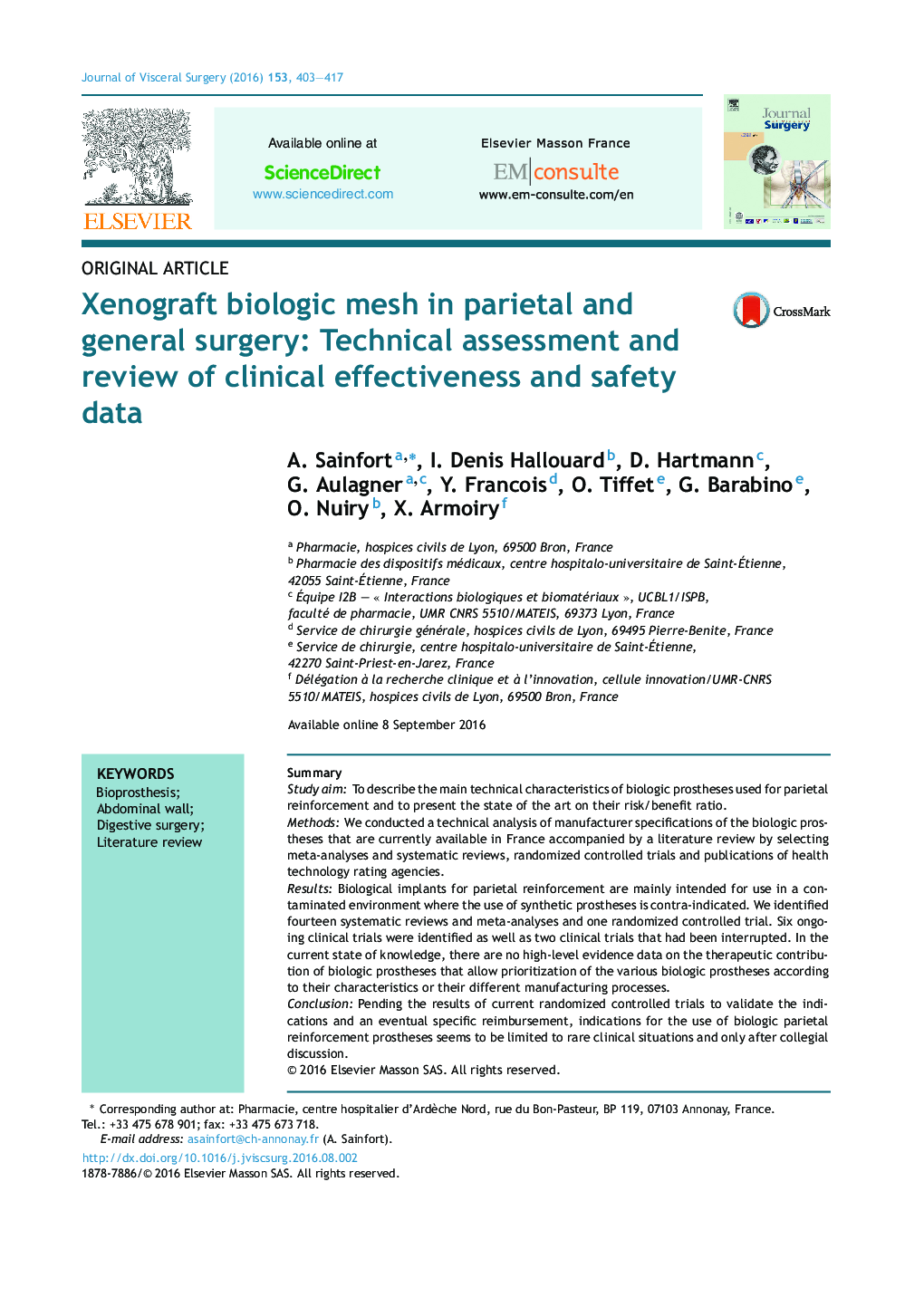| Article ID | Journal | Published Year | Pages | File Type |
|---|---|---|---|---|
| 5661064 | Journal of Visceral Surgery | 2016 | 15 Pages |
SummaryStudy aimTo describe the main technical characteristics of biologic prostheses used for parietal reinforcement and to present the state of the art on their risk/benefit ratio.MethodsWe conducted a technical analysis of manufacturer specifications of the biologic prostheses that are currently available in France accompanied by a literature review by selecting meta-analyses and systematic reviews, randomized controlled trials and publications of health technology rating agencies.ResultsBiological implants for parietal reinforcement are mainly intended for use in a contaminated environment where the use of synthetic prostheses is contra-indicated. We identified fourteen systematic reviews and meta-analyses and one randomized controlled trial. Six ongoing clinical trials were identified as well as two clinical trials that had been interrupted. In the current state of knowledge, there are no high-level evidence data on the therapeutic contribution of biologic prostheses that allow prioritization of the various biologic prostheses according to their characteristics or their different manufacturing processes.ConclusionPending the results of current randomized controlled trials to validate the indications and an eventual specific reimbursement, indications for the use of biologic parietal reinforcement prostheses seems to be limited to rare clinical situations and only after collegial discussion.
